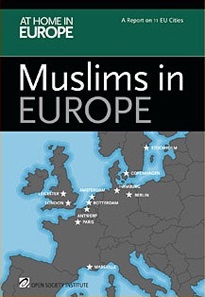The Belgian lower house of parliament on Thursday approved a bill to ban wearing the full Islamic face veil in public, a move that could make Belgium the first European country to make the practice a criminal offence.
The draft law, cast as a security measure by proponents, was overwhelmingly backed by 136 lawmakers. Just two abstained.
The bill, which would ban all clothing that covers or partially covers the face, could become law in the coming months as the upper house, or Senate, is not expected to block it.
However, the collapse of Belgium’s coalition government last week and the prospect of an imminent election could cause a delay because parliament would have to be dissolved.
Belgium’s French-speaking liberals, who proposed the veil law, argued that an inability to identify people who have hidden their faces presents a security risk and that the veil was a “walking prison” for women.
The bill’s chief promoter, Daniel Bacquelaine, said local mayors could suspend the ban during festivities such as Carnival when people traditionally wear costumes, including masks.
See also BBC News, 29 April 2010

 Most of Europe’s Muslims want to live in mixed communities, not segregated neighbourhoods, a
Most of Europe’s Muslims want to live in mixed communities, not segregated neighbourhoods, a  “Sitting in his office in Antwerp, Filip Dewinter says he wants to keep religion out of public life, protect free speech, promote democracy and ensure the equality of men and women.
“Sitting in his office in Antwerp, Filip Dewinter says he wants to keep religion out of public life, protect free speech, promote democracy and ensure the equality of men and women. Dozens of protesters sported party hats, colanders and other unlikely headgear in protests Tuesday at schools in the Belgian city of Antwerp where authorities have banned girls from wearing the Muslim veil.
Dozens of protesters sported party hats, colanders and other unlikely headgear in protests Tuesday at schools in the Belgian city of Antwerp where authorities have banned girls from wearing the Muslim veil.